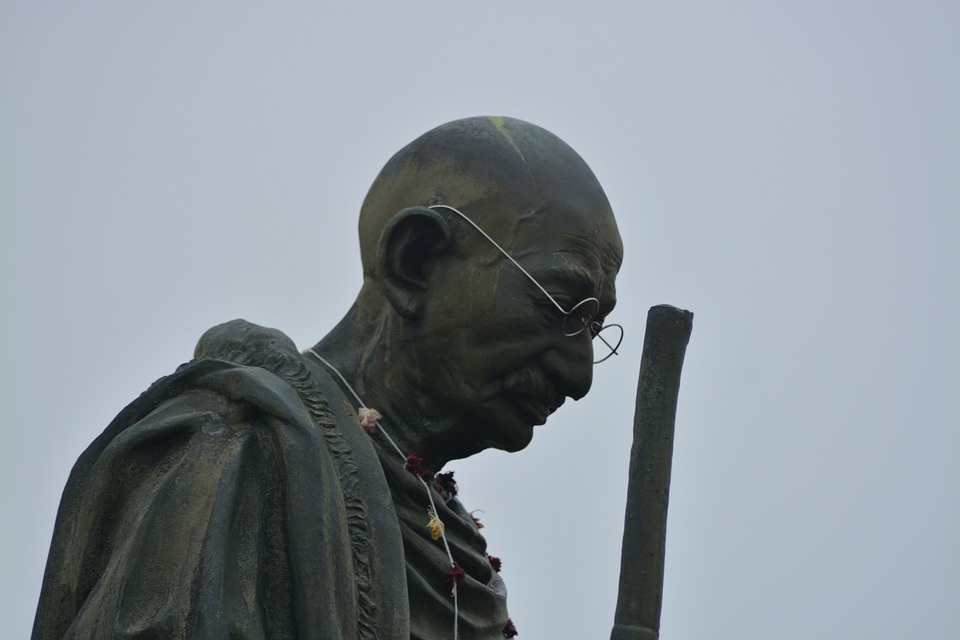Introduction
Throughout history, peacemakers have played crucial roles in mitigating conflicts, fostering understanding, and promoting harmony among nations and communities. This essay will explore the contributions of five of history’s greatest peacemakers: Mahatma Gandhi, Martin Luther King Jr., Nelson Mandela, Mother Teresa, and Malala Yousafzai. Through their efforts, we can derive valuable lessons on non-violence, justice, reconciliation, compassion, and the power of education.
Mahatma Gandhi (1869-1948)
Mahatma Gandhi, often referred to as the father of non-violent resistance, led India to independence from British rule through his philosophy of Satyagraha, or non-violent protest. His belief in non-violence as a powerful tool for social change was revolutionary.
Lesson 1: The Power of Non-Violence Gandhi’s approach demonstrated that non-violence is not a sign of weakness but a powerful tool for enacting social change (Bondurant, 1958). His strategies of peaceful protests, boycotts, and civil disobedience were instrumental in achieving political and social reforms without resorting to violence (Sharp, 1973).
Lesson 2: Moral Integrity and Personal Sacrifice Gandhi’s life exemplified the importance of living by one’s principles. His personal sacrifices and moral integrity garnered widespread respect and support, showing that true leadership often involves personal sacrifice (Fischer, 1954).
Martin Luther King Jr. (1929-1968)
Martin Luther King Jr., inspired by Gandhi’s methods, became the face of the American civil rights movement. His leadership in the fight against racial segregation and discrimination in the United States remains a testament to the power of non-violent activism.
Lesson 3: The Importance of Courageous Leadership King’s leadership in the face of severe adversity and threats exemplifies the courage required to lead social movements. His “I Have a Dream” speech articulated a vision of racial equality that continues to inspire generations (Branch, 1988).
Lesson 4: Faith and Perseverance King’s deep faith and perseverance amidst challenges highlight the importance of resilience in achieving social justice (Oates, 1982). His ability to mobilize and inspire others was crucial in maintaining momentum in the civil rights movement.
Nelson Mandela (1918-2013)
Nelson Mandela’s struggle against apartheid in South Africa is a story of resilience and reconciliation. After 27 years of imprisonment, he emerged as a leader who united a divided nation through forgiveness and inclusive governance.
Lesson 5: Reconciliation Over Retribution Mandela’s decision to focus on reconciliation rather than retribution set the stage for a peaceful transition to majority rule in South Africa (Sampson, 1999). His efforts in establishing the Truth and Reconciliation Commission emphasized healing and unity over punishment.
Lesson 6: The Power of Forgiveness Mandela’s willingness to forgive his oppressors and work with them for a better future demonstrates the transformative power of forgiveness in peacemaking (Tutu, 1999).
Mother Teresa (1910-1997)
Mother Teresa, founder of the Missionaries of Charity, dedicated her life to serving the poorest of the poor in Calcutta, India. Her work transcended religious and cultural boundaries, embodying compassion and humanitarianism.
Lesson 7: Compassion and Service Mother Teresa’s life teaches the profound impact of compassion and selfless service. Her work with the destitute and dying highlighted the importance of caring for the marginalized in society (Chawla, 1992).
Lesson 8: Humility and Dedication Her humility and unwavering dedication to her cause showed that significant social change often comes from humble, persistent efforts (Egan, 1989).
Malala Yousafzai (1997-Present)
Malala Yousafzai, a Pakistani education activist, became the youngest-ever Nobel Prize laureate after surviving a Taliban assassination attempt. Her advocacy for girls’ education continues to inspire worldwide movements for educational rights.
Lesson 9: The Power of Education Malala’s story underscores the critical role of education in empowering individuals and transforming societies. Her advocacy highlights how education is a fundamental right and a catalyst for social change (Yousafzai, 2013).
Lesson 10: Courage and Resilience Malala’s courage in the face of life-threatening adversity and her continued activism demonstrate the power of resilience and the importance of standing up for one’s beliefs (Lamb, 2013).
Conclusion
The lives and legacies of Gandhi, King, Mandela, Mother Teresa, and Malala offer profound lessons in non-violence, justice, reconciliation, compassion, and the power of education. Their examples show that individual actions, driven by strong principles and moral integrity, can lead to significant social change and inspire generations to work towards a more peaceful and just world.
References
- Bondurant, J. V. (1958). Conquest of Violence: The Gandhian Philosophy of Conflict. Princeton University Press.
- Branch, T. (1988). Parting the Waters: America in the King Years 1954-63. Simon & Schuster.
- Chawla, N. (1992). Mother Teresa. St. Martin’s Press.
- Egan, E. (1989). Such a Vision of the Street: Mother Teresa – The Spirit and the Work. Doubleday.
- Fischer, L. (1954). The Life of Mahatma Gandhi. Harper & Row.
- Lamb, C. (2013). I Am Malala: The Girl Who Stood Up for Education and Was Shot by the Taliban. Little, Brown and Company.
- Oates, S. B. (1982). Let the Trumpet Sound: The Life of Martin Luther King, Jr. Harper & Row.
- Sampson, A. (1999). Mandela: The Authorized Biography. HarperCollins.
- Sharp, G. (1973). The Politics of Nonviolent Action. Porter Sargent Publisher.
- Tutu, D. (1999). No Future Without Forgiveness. Doubleday.
